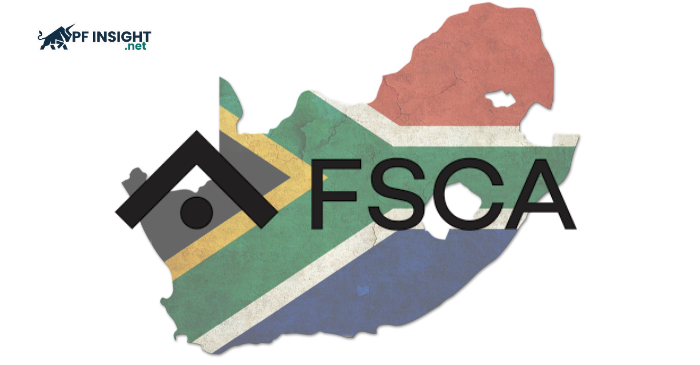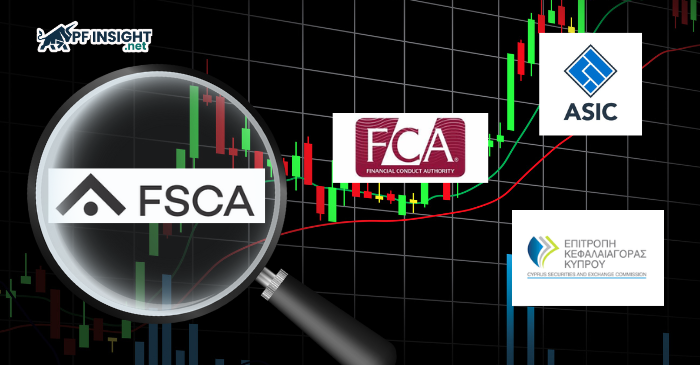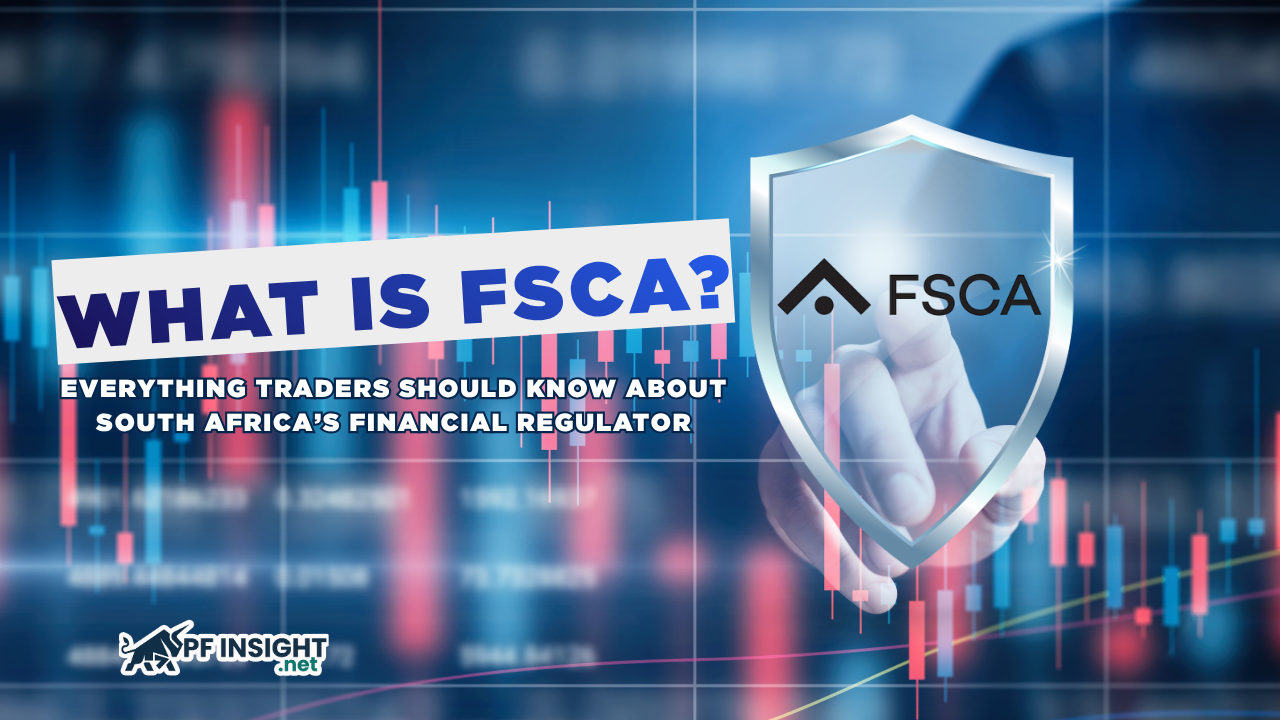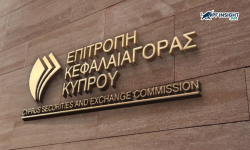To trade safely in the financial markets, choosing a reputable broker is essential. Today, there are many criteria to evaluate a quality broker, but among them, the financial regulation license is the most important factor every trader should consider.
Among trusted regulators, the FSCA (Financial Sector Conduct Authority) stands out as one of the most respected and globally recognized authorities. For global traders, especially in the forex and CFD sectors, understanding what the FSCA is and how it operates is vital. A broker regulated by the FSCA must comply with strict requirements on capital safety, transparent reporting, and fair complaint handling, helping traders significantly reduce risks when trading.
In this article, PF Insight will explain in detail what FSCA is, how it works, why FSCA regulation matters to traders, and how you can verify if a broker is truly licensed so you can trade with confidence and choose a trustworthy broker.
- Cysec license check and what traders must know in 2025
- Weekend holding rules: Protecting your capital during market gaps
- Top 5 prop trading rules every funded trader must know in 2025
What is FSCA (Financial Sector Conduct Authority)?
The FSCA (Financial Sector Conduct Authority) is South Africa’s financial regulatory authority, established in 2018 to replace the former Financial Services Board (FSB). Its main purpose is to oversee the conduct of financial institutions, protect investors’ interests, and ensure that financial markets operate in a fair, transparent, and stable manner.

As one of the most reputable regulators in Africa, the FSCA plays a vital role in maintaining integrity within the global financial landscape. It supervises all entities providing financial services in South Africa, including forex brokers, insurance companies, investment funds, and credit institutions.
The FSCA’s mission goes beyond enforcing laws; it also aims to promote fairness, transparency, and consumer protection across all financial activities.
One of the key strengths that sets the FSCA apart is its independent oversight mechanism, allowing it to exercise regulatory authority without interference from commercial or political entities. This independence has made the FSCA one of the most transparent and respected regulators in Africa, earning recognition from traders and investors worldwide.
The role of FSCA in South Africa’s financial markets
Responsibilities of the FSCA
The FSCA (Financial Sector Conduct Authority) is responsible for supervising the overall conduct of all financial institutions in South Africa, including banks, investment firms, forex brokers, insurance companies, and credit organizations. It is essential to make sure that all players in the financial market follow the rules of ethics, justice, and openness.
Key responsibilities of the FSCA include:
- Licensing and supervising the activities of Financial Service Providers (FSPs).
- Ensuring all financial service companies comply with existing legal and regulatory frameworks.
- Investigating and taking enforcement actions against fraud, misconduct, or activities that pose risks to investors.
- Protecting the rights of financial consumers by establishing a clear and transparent complaint and response mechanism.
- Cooperating with both domestic and international authorities (such as the South African Reserve Bank – SARB) to maintain national financial stability.
Objectives of the FSCA
The FSCA operates with a long-term vision to build a safe, transparent, and sustainable financial market for both institutions and investors.
Its core objectives include:
- Consumer protection – ensuring clients receive accurate information and are safeguarded from fraud or manipulation.
- Market integrity – preventing insider trading, price manipulation, and other unethical financial behaviors.
- Fair competition – fostering a healthy and innovative environment among financial institutions.
- Financial education – improving investor awareness of risks and rights within the market.
- Global integration – strengthening South Africa’s reputation as a transparent and trustworthy financial hub within Africa and worldwide.
Why FSCA regulation matters for traders

In the highly volatile and competitive forex market, choosing a broker regulated by a reputable authority is one of the most crucial steps to protect your capital and trade safely. Like the FSCA, South Africa’s financial regulatory body, which is renowned worldwide for its strict oversight of financial institutions, transparency, and fairness. Here are the key reasons why trading with an FSCA-regulated broker makes a real difference:
Investor protection
The FSCA requires all licensed brokers to segregate client funds from company funds, ensuring traders’ money cannot be used for internal operations.
In addition, licensed entities must submit regular financial reports, minimizing risks of loss due to fraud or poor management.
Transparency in operations
The FSCA mandates brokers to clearly disclose trading fees, deposit/withdrawal terms, leverage, and potential risks, enabling traders to make informed decisions.
This is especially critical in forex, where hidden spreads or unclear terms can significantly impact trading results.
Dispute resolution and complaint handling
Unlike many regulators that only issue licenses, the FSCA has a dedicated division for handling trader complaints, ensuring customers have a transparent legal channel for dispute resolution.
Traders can submit complaints directly through the official FSCA website, where all cases are reviewed publicly and fairly.
Strict supervision and regular audits
The FSCA conducts periodic inspections to verify ongoing compliance and publishes a Warning List of fake or unlicensed brokers to help traders avoid scams.
FSCA vs other global regulators (FCA, ASIC, CySEC)

In the global financial landscape, every country has its own regulatory authority to ensure transparency and safety in trading activities. Although not as widely recognized as the FCA (UK) or ASIC (Australia), South Africa’s FSCA (Financial Sector Conduct Authority) is considered one of the most stable, practical, and trader-friendly regulators in the world. Below is a comparison of FSCA with other major global regulators:
FSCA vs FCA (United Kingdom)
The FCA – Financial Conduct Authority in the UK is regarded as one of the strictest regulators globally. It requires brokers to maintain high minimum capital, segregate client funds, and participate in the FSCS (Financial Services Compensation Scheme), which protects clients’ deposits in case of broker insolvency.
Compared to the FCA, the FSCA offers more flexibility, making it suitable for smaller brokers or forex startups. However, it still enforces strong standards of transparency and compliance, ensuring fair market practices for both brokers and traders.
FSCA vs ASIC (Australia)
The ASIC – Australian Securities and Investments Commission is known for its strict advertising rules and leverage limits (capped at 30:1 for retail traders).
The FSCA, on the other hand, allows more flexible leverage options, giving traders greater freedom while still maintaining regulatory oversight.
Moreover, FSCA-licensed brokers must submit periodic financial reports and undergo independent audits, ensuring a level of transparency comparable to ASIC’s requirements.
FSCA vs CySEC (Cyprus)
The CySEC – Cyprus Securities and Exchange Commission, being part of the European Union, benefits from the MiFID II regulatory framework, which allows brokers to operate across EU member states.
However, CySEC is often criticized for granting licenses too easily, resulting in inconsistent levels of enforcement among brokers.
In contrast, the FSCA applies a more rigorous vetting process for new applicants, including proof of financial capability and established local operations in South Africa, making it a more reliable choice for traders seeking genuine, accountable oversight.
Conclusion
Choosing a broker regulated by the FSCA means you are trading within a controlled and transparent framework where all activities are monitored, reported, and backed by a clear complaint resolution process. This provides an essential layer of protection, giving traders greater confidence when investing in the forex and CFD markets.
The information above summarizes everything you need to know about the FSCA license and its role in financial regulation. Stay tuned to Business & Legal for more insights and updates on global financial licenses and broker regulations.







